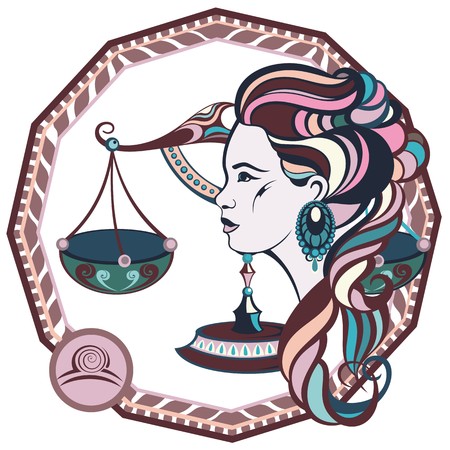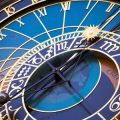Introduction to Alan Leo and the British Astrological Landscape
In the gentle twilight of Victorian Britain, a subtle transformation was afoot. The late 19th and early 20th centuries were times of sweeping social change—a period when industrial innovation intertwined with spiritual curiosity, and the British public began to look beyond rigid tradition towards new ways of understanding themselves and the world around them. It was in this unique social atmosphere that Alan Leo, often regarded as the father of modern astrology in the UK, began to quietly shape his legacy.
Amidst London’s fog-laden streets and genteel drawing rooms, astrology was enjoying a quiet renaissance. No longer confined solely to fatalistic predictions or the parlours of eccentric mystics, it started to beckon thoughtful minds who yearned for more personal insight—a desire that mirrored the broader quest for self-understanding rippling through British society at the time. Alan Leo stood at this crossroads, his sensitive nature attuned both to the subtle nuances of human psychology and to the shifting tides of popular interest.
Leo’s approach was gently radical: rather than seeing astrology as a tool for forecasting immutable fate, he championed its use as a mirror for inner growth and character analysis. His vision resonated with those who sought meaning beneath life’s surface events—a distinctly British blend of introspection and pragmatism. In these years, as tea was poured and newspapers discussed the latest scientific discoveries, Alan Leo offered another kind of guidance: one that promised gentle illumination of the soul’s path amid the uncertainties of modern life.
Astrology Before Alan Leo: Predictive Traditions and Victorian Attitudes
Before Alan Leo’s gentle revolution in the world of astrology, the British scene was dominated by deterministic traditions that echoed the rational and respectable values of Victorian society. In the late nineteenth century, astrology in the UK carried an air of fatalism—one’s birth chart was often interpreted as a fixed map, promising definite outcomes and unavoidable fate. This approach resonated with a culture that prized order, hierarchy, and clear moral boundaries, yet it also clashed with the era’s growing emphasis on scientific thinking and personal responsibility.
The following table provides a nuanced glimpse into the prevailing astrological mindset before Leo’s influence:
| Aspect | Pre-Leo Astrology | Victorian Values Reflected |
|---|---|---|
| Interpretation Style | Deterministic, predictive | Desire for certainty and order |
| Practitioner Role | Authoritative fortune-teller | Respect for social hierarchy and expertise |
| Public Perception | Sensationalist, sometimes disreputable | Moral propriety; suspicion towards the occult |
| Main Focus | External events, fixed destiny | Lack of emphasis on inner life or self-improvement |
During this period, astrology was often relegated to the fringes of polite society—seen as either a parlour amusement or a dangerous superstition. The Victorian mindset, while intrigued by mystery, demanded respectability above all else. Astrologers needed to present themselves as credible and rational if they wished to be taken seriously. Yet most continued to predict health crises or fortunes lost and found, reinforcing public scepticism and distancing astrology from mainstream acceptance.
This deterministic tradition left little room for individual agency—a concept increasingly cherished in Victorian Britain. People were taught to believe in self-discipline, social mobility through effort, and the importance of character. Astrology’s focus on unalterable fate seemed at odds with these ideals. It is within this cultural context that Alan Leo’s more psychologically sensitive approach would soon find fertile ground, gently shifting astrology towards introspection and personal growth.

3. Alan Leos Innovative Approach: Blending Psychology and the Stars
When Alan Leo stepped onto the British astrological stage, he brought with him not just a fascination for celestial mechanics, but a gentle revolution in how the stars were interpreted. Unlike his predecessors, who often focused on rigid predictions and fatalistic outlooks, Leo believed that astrology could be a tool for personal growth and self-understanding. His readings were imbued with a new warmth—one that invited individuals to reflect on their inner landscape as much as their cosmic blueprint.
Leo’s compassionate approach was deeply influenced by emerging trends in psychology at the turn of the twentieth century. He began to see the birth chart not merely as a map of fate, but as a mirror reflecting an individual’s emotional and psychological makeup. This shift marked a subtle yet profound move away from deterministic thinking, infusing British astrology with a fresh sense of hope and humanity. No longer were star signs merely about luck or doom; they became keys to understanding one’s strengths, challenges, and potential for transformation.
For many in the UK—where traditional stoicism often coloured public life—Leo’s introspective style felt both radical and comforting. By inviting people to explore their motivations, fears, and desires through their horoscopes, he encouraged a more mindful relationship with destiny. The language he used was empathetic and non-judgemental, echoing the soft-spoken wisdom of a trusted confidant rather than an aloof oracle. In this way, Alan Leo laid the groundwork for what would become known as psychological astrology—a uniquely British blend of spiritual curiosity and pragmatic self-exploration.
4. The Making of Modern Psychological Astrology
The gentle dawn of psychological astrology in the UK can be traced to Alan Leo’s visionary fusion of cosmic wisdom and introspective understanding. As the early 20th century unfolded, a subtle yet profound transformation began to stir within British astrological circles. No longer was astrology merely about predicting external events or foretelling fate; instead, it evolved towards nurturing self-awareness, personal growth, and soulful reflection.
Leo’s influence gently encouraged astrologers and seekers alike to look inward, using the stars as mirrors for the psyche rather than as distant rulers of destiny. This shift harmonised beautifully with the British penchant for quiet contemplation and the nation’s growing fascination with psychology—reflected in the parallel rise of figures like Carl Jung. The following table illustrates how traditional astrology began to blend with psychological insights under Leo’s guidance:
| Traditional Astrology | Psychological Astrology (Post-Leo) |
|---|---|
| Focus on prediction and fate | Emphasis on self-understanding |
| Planetary influences as external forces | Planets symbolise inner drives & archetypes |
| Rigid interpretations | Nuanced, introspective readings |
| Public fortune-telling | Private personal development |
This gentle revolution resonated deeply within the UK’s spiritual communities, especially as post-war Britain longed for meaning and healing. Leo’s teachings inspired a generation of astrologers who prized introspection over spectacle, seeking not only to chart cosmic cycles but also to align them with one’s emotional tides and mental landscapes.
The result? A uniquely British approach to astrology—one that balances tradition with innovation, intellect with intuition. This nuanced legacy continues to ripple through contemporary practice, inviting each seeker on a journey that is as much about understanding oneself as it is about reading the stars.
5. Enduring Legacy: Modern British Perspectives on Astrology
Alan Leo’s visionary approach to astrology has left a gentle but profound imprint on the way modern Britons interpret the stars. His pioneering integration of psychological insight with traditional astrological methods quietly transformed not just professional practice, but also everyday attitudes toward fate, personality, and self-understanding in the UK. Today, as you stroll through bustling London markets or relax in a cosy Cotswolds café, you might overhear conversations peppered with zodiac references—“Typical Mercury retrograde!” or “She’s such a true Virgo”—reflecting how Leo’s legacy weaves itself into common parlance and social observation.
Contemporary Astrologers and Leo’s Influence
Within British astrological circles, Leo is often regarded as the gentle grandfather of psychological astrology. Modern practitioners, from seasoned astrologers in Bristol to online horoscope writers, continue to build upon his ethos—emphasising personal growth, self-awareness, and the potential for change over fatalistic predictions. This evolution is evident in the UK’s thriving astrology societies, workshops, and podcasts, where discussions centre around using star wisdom as a tool for emotional intelligence and mindful living.
The Everyday Language of the Stars
Leo’s human-centred perspective has helped embed astrological language into British culture in a subtle yet lasting way. Whether it’s friends joking about their compatibility at a pub or young professionals reading daily horoscopes on their commute, there’s an unspoken acceptance that the stars can offer gentle guidance rather than strict decrees. This echoes Leo’s original belief that astrology should empower individuals rather than define them—a sentiment that resonates especially well with the British penchant for both self-deprecation and quiet introspection.
British Attitudes: Scepticism Meets Curiosity
Of course, classic British scepticism persists alongside this openness; astrology here is often approached with a wink and a nudge. Yet even those who claim not to ‘believe’ in it may still reference their star sign or glance at their birth chart out of curiosity. In this way, Leo’s legacy endures not just in specialist circles but in the everyday dance between doubt and wonder—a uniquely British blend that keeps astrology both grounded and enchanting.
In reflecting on Alan Leo’s enduring influence, it becomes clear that his gentle wisdom continues to shape how people across the UK relate to themselves and each other through the language of the stars. His vision lives on in every thoughtful horoscope column, every late-night conversation about cosmic fate, and in the soft glow of hope that comes from believing our stories are written not just in stone, but among the ever-changing constellations above.

